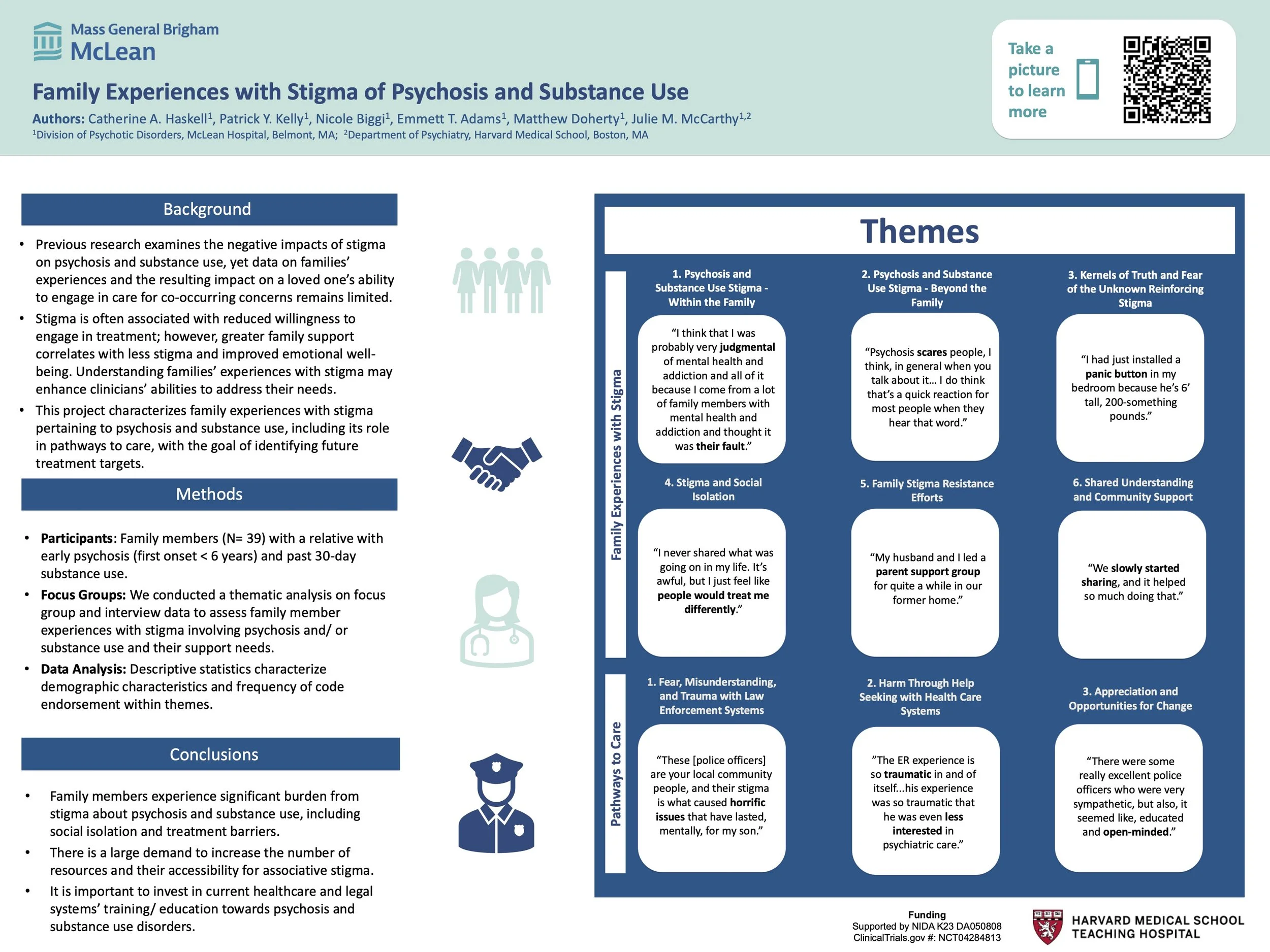Family Experiences with Psychosis and Substance use Stigma
Catherine Haskell (1), Patrick Y. Kelly (1), Nicole Biggi (1), Emmett T. Adams (1), Matthew Doherty (1), Julie M. McCarthy (1,2)
1. Division of Psychotic Disorders, McLean Hospital
2. Department of Psychiatry, Harvard Medical School
Background: Previous research examines the negative impacts of stigma on psychosis and substance use, yet data on families’ experiences and the resulting impact on a loved one’s ability to engage in care for co-occurring concerns remains limited. Stigma is often associated with reduced willingness to engage in treatment; however, greater family support correlates with less stigma and improved emotional well-being. This project characterizes family experiences with stigma pertaining to psychosis and substance use, including its role in pathways to care, with the goal of identifying future treatment targets.
Methods: Participants were family members (N=39) of individuals with early psychosis (first episode psychosis <6 years) and past 30-day substance use. We conducted a thematic analysis on focus group and interview data to assess family member experiences with stigma involving psychosis and/or substance use and their support needs. Descriptive statistics characterize demographic characteristics and the frequency of code endorsement within themes.
Results: Participants reported the following themes for family experiences with stigma: 1) psychosis and substance use stigma – within the family, 2) psychosis and substance use stigma – beyond the family, 3) kernels of truth and fear of the unknown reinforcing stigma, 4) stigma and social isolation, 5) family stigma resistance efforts, and 6) shared understanding and community support. Participants also identified themes about stigma and pathways to care: 1) fear, misunderstanding, and trauma with law enforcement systems, 2) harm through help seeking with health care systems, and 3) appreciation and opportunities for change.
Conclusion: The data highlighted extents to which stigma exists within patients, families, legal and healthcare systems, and the public; stigma was also linked to social isolation and treatment barriers. There is a continued need to expand support and education on psychosis and substance use and what different community and family members can do to reduce stigma and enhance recovery.

